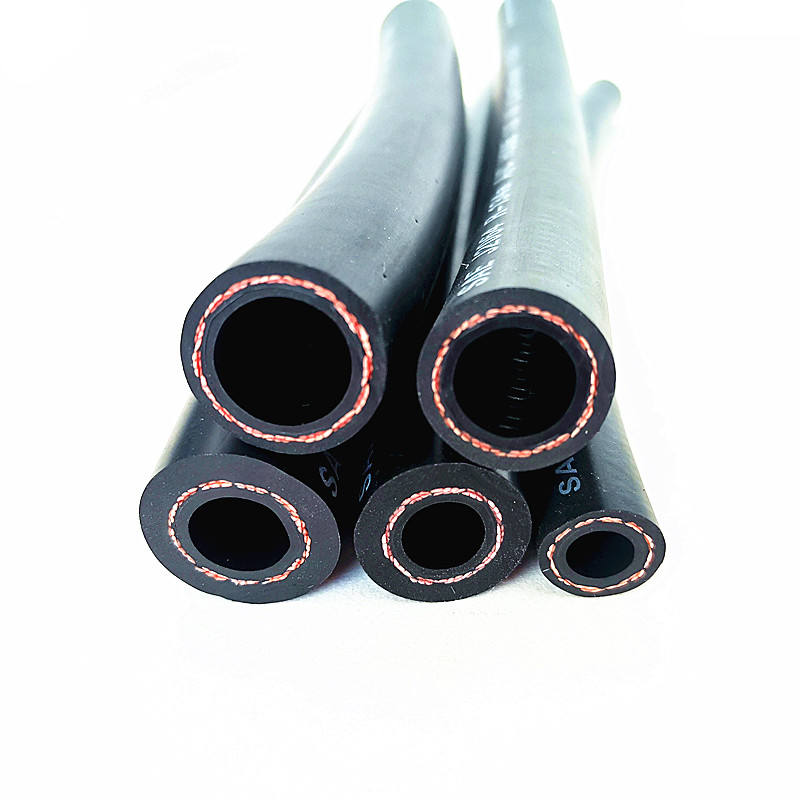Қаз . 18, 2024 15:01 Back to list
Baili Hose Achieves CE Certification for Enhanced Quality and Safety Standards
Understanding CE Certification for Baili Hose Products
In today's global marketplace, product safety and compliance have become paramount for manufacturers and consumers alike. Among various standards that govern product quality, the CE certification has gained significant recognition, particularly within the European Union (EU). This certification is especially crucial for manufacturers of specialized products, such as the Baili hose, which is designed for a wide range of applications, including fluid transfer in industrial and agricultural settings.
What is CE Certification?
CE marking signifies that a product meets the essential requirements of EU directives related to health, safety, and environmental protection. The initials CE stand for Conformité Européenne, which translates to European Conformity. This marking indicates that the product has undergone rigorous testing and complies with the relevant EU regulations, allowing it to be marketed within the European Economic Area (EEA).
The Importance of CE Certification for Baili Hose
For manufacturers of Baili hoses, obtaining CE certification is not merely a regulatory hurdle; it is a testament to product quality and reliability. Baili hoses, typically constructed from durable materials capable of withstanding high pressure and varying temperatures, are used extensively in sectors such as construction, agriculture, and chemical processing. Achieving CE certification assures customers that these hoses have been tested for safety and performance, minimizing the risks associated with their use.
ce certification baili hose

Moreover, CE certification can enhance a manufacturer’s reputation and open up new market opportunities. In regions where compliance is a prerequisite for sale, such as the EU, products lacking CE marking may be rejected by distributors or retailers. By ensuring their Baili hoses are CE certified, manufacturers can confidently approach international markets, knowing they meet essential standards.
The Certification Process
The path to CE certification for a Baili hose involves several steps. Initially, manufacturers must identify the applicable EU directives and harmonized standards that pertain to their product. This can include regulations related to pressure equipment, machinery, and environmental considerations. Once the relevant standards are established, manufacturers must conduct a thorough assessment of their product, which may include tests for material quality, mechanical performance, and environmental impact.
After the testing phase, documentation must be compiled to demonstrate compliance. This includes a Declaration of Conformity, technical files, and evidence of testing results. Depending on the product and its intended use, the involvement of a Notified Body—an organization designated by the authorities to conduct conformity assessment—may also be required.
Conclusion
In conclusion, CE certification is vital for Baili hose manufacturers, not just as a regulatory requirement but as a marker of product integrity and safety. By navigating the certification process effectively, manufacturers can ensure that their products stand out in the competitive market while safeguarding user safety and environmental health. As demand for high-quality industrial products continues to grow, CE certification will remain a crucial factor in the success of Baili hoses across the globe. For both manufacturers and consumers, understanding and valuing this certification is essential for promoting safer, more effective products in the marketplace.
-
Best Four Steel Wire Spiral Hose Hydraulic R12 – Durable High-Pressure Hose Manufacturer
NewsJul.08,2025
-
High-Quality 1/4 Hydraulic Hose – Soft, Flexible & Durable Rubber Hoses for Industrial Use
NewsJul.08,2025
-
1 1 2 Inch Hydraulic Flexible Hose - Durable, Reliable, High-Pressure Solutions
NewsJul.07,2025
-
High-Quality 1 2 Rubber Hose - Durable, Flexible Hydraulic Solutions
NewsJul.07,2025
-
Discover SAE Hydraulic Hose Types - High Quality & Durable Hoses from Leading Factory Supplier
NewsJul.06,2025
-
High Pressure Wire Hydraulic Rubber Hose Supplier Durable & Reliable 1SN Hose Solutions
NewsJul.06,2025
